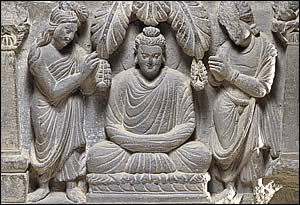“Appamāda”: la serietà della non distrazione
(Appamāda: Seriousness of Non-Distraction)
DOI:
https://doi.org/10.13135/2038-6788/10095Keywords:
Appamāda, Buddha, Awareness, Guru, Non-Distraction, Seriousness, TruthAbstract
The word used for “serious,” in the Pāli language of the Buddhist Canon, is garu (the equivalent of the Sanskrit guru); however, in the canonical texts, one cannot find the derivative abstract noun garutā. Instead, there is another key term that could be translated as “seriousness”: appamāda. Before his passing away, the Buddha told his disciples: “Strive on with appamāda”. Now, appamāda is a negative concept (a-ppamāda) that can be translated in many ways: for example, absence of negligence, distraction or laziness. According to Buddhaghosa’s commentary, the phrase of the Buddha means: “Carry out all things that need to be done with uninterrupted awareness”. Essentially, in the Buddha’s vision, seriousness consists of constant non-distraction, which on the one hand is the means to awaken to reality, on the other is already a small awakening in itself. In their poems, the first Buddhist nuns have left a testimony of how non-distraction with respect to painful phenomena has helped them in their spiritual path.


